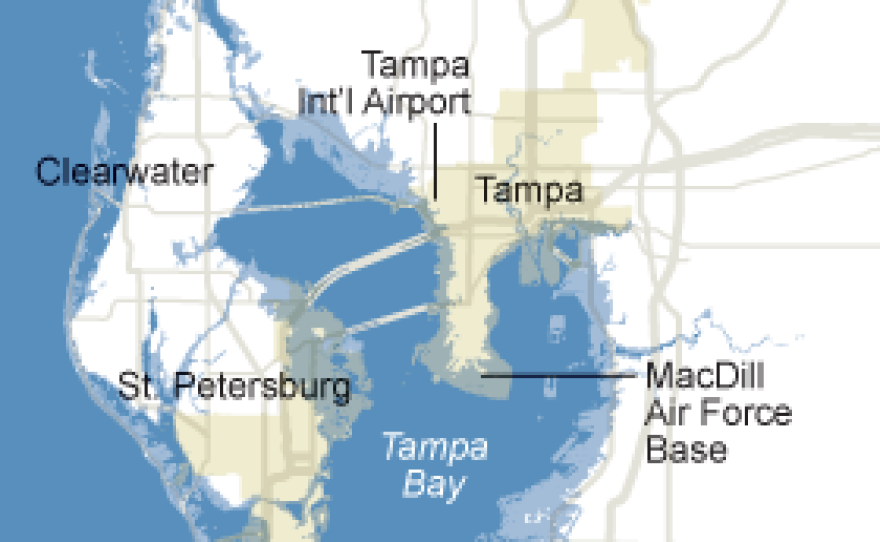The New York Times says global warming and sea level rise isn't just a threat in the future -- it was a fact in the past.
A new article says the amount of sea level rise could be much higher, and happen much faster, than previously believed. And if past changes are any clue, the sea levels could get pretty high:
In previous research, scientists have determined that when the earth warms by only a couple of degrees Fahrenheit, enough polar ice melts, over time, to raise the global sea level by about 25 to 30 feet. But in the coming century, the earth is expected to warm more than that, perhaps four or five degrees, because of human emissions of greenhouse gases. Experts say the emissions that may make a huge increase of sea level inevitable are expected to occur in just the next few decades. They fear that because the world’s coasts are so densely settled, the rising oceans will lead to a humanitarian crisis lasting many hundreds of years.
This issue is critically important to the Tampa Bay region. Much of south Tampa, St. Petersburg and the Pinellas beaches would be flooded with just a few feet of sea level rise (see attached slideshow.)
It's the topic of a March event at Eckerd College: “Sea Level Rise in Florida: Mitigation, Adaptation or Retreat?”
It's at 7 p.m. on Thursday, March 28. See the description below.
“Sea Level Rise in Florida: Mitigation, Adaptation or Retreat?” Dr. Pier Vellinga, Professor in Climate Change and Flood Risk at Wageningen University, Professor in Climate Change and Societal Implications at the Vrije Universiteit in Amsterdam; Dr. Henry Pollack, Professor Emeritus of Geophysics at the University of Michigan. In the wake of Superstorm Sandy and the estimated $60 billion in damage, two of the world’s leading climate change scientists will offer their insights through a lecture presentation. Dr. Vellinga was lead author of several chapters and Dr. Pollack a contributing author in the assessment reports of the Intergovernmental Panel on Climate Change, which shared the Nobel Peace Prize in 2007. As one of the first scientists to publish on climate change and its implications regarding water and energy in the eighties, Dr. Vellinga is the chairman of the Knowledge for Climate research program and vice chairman of the Climate Changes Spatial Planning program, both of which support the Netherlands government and companies with operational knowledge required for investment decisions related to climate change adaptation and mitigation. Dr. Pollack travels regularly to Antarctica and has conducted scientific research on all seven continents. In 2010, he wrote the book "A World Without Ice" which provides an analysis of climate change science. In 2003, he wrote "Uncertain Science ... Uncertain World."






